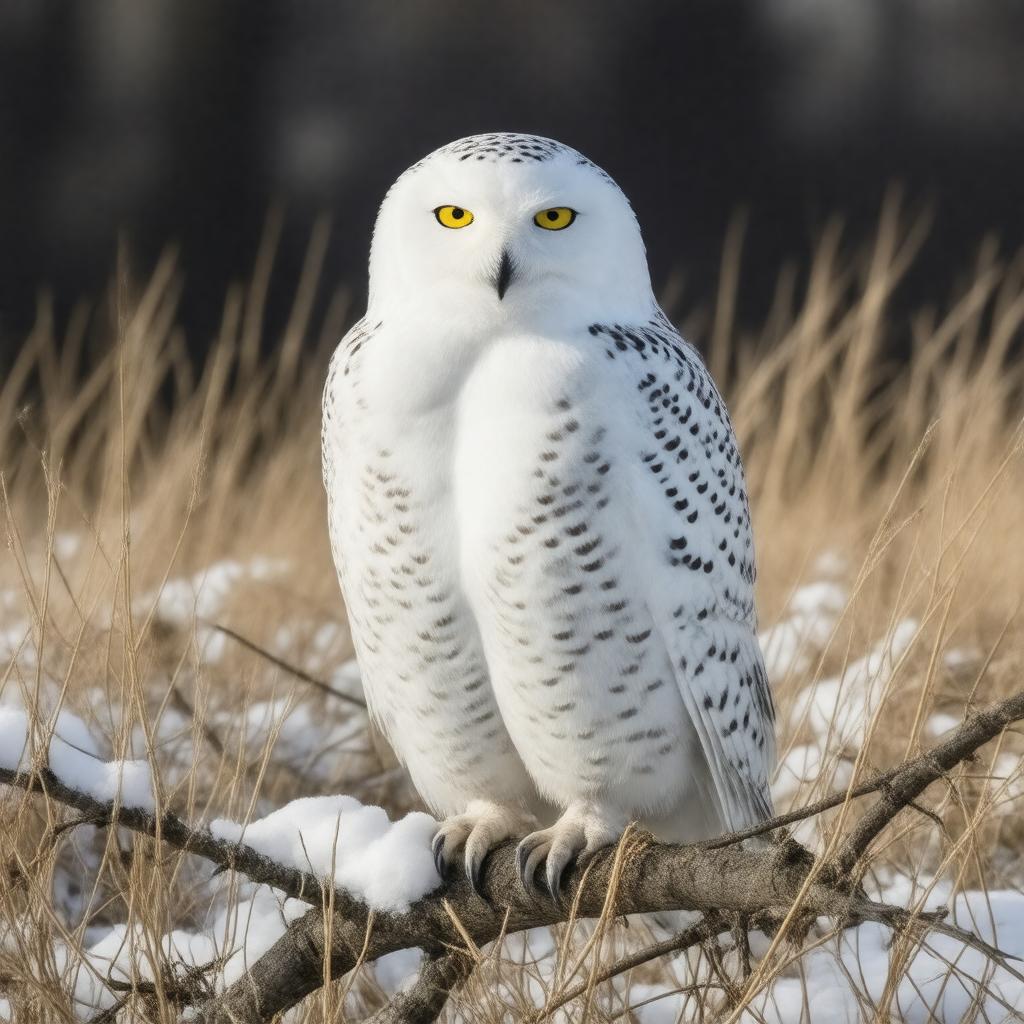Prompt
"Generate an image of a Snowy Owl (Bubo scandiacus) perched on a snowy branch, set against a serene Arctic landscape with a clear blue sky, showcasing its distinctive white plumage with black spots, yellow eyes, and black beak, with a subtle hint of its habitat's grassy terrain in the background, in a realistic and majestic style."

